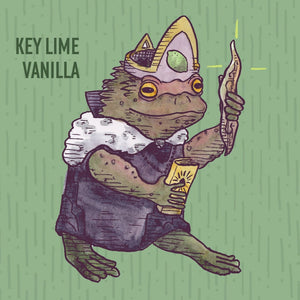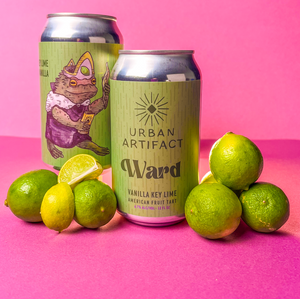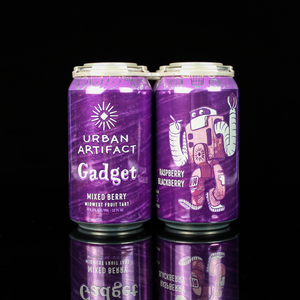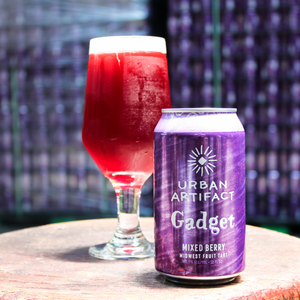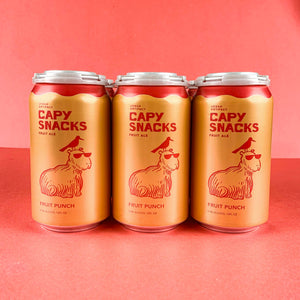Fruit beers! The best beers if you ask us. The blending of refined country fruit wines and beer elevated to another level with wild cultures and natural acidity. Fruit beers come in all forms, but let me be clear. We are talking about real fruit beers in this exposé, as well all know real fruit’s better. So put aside any thoughts of those fruit flavored beers, and let’s get down to brass tacks.
There are two main schools of thought on fruit beer production in regards to a brewer’s processing techniques. For the sake of this article, we aren’t going to explore the differences in the variety of real fruit products out there, but speak more directly to how a brewer uses fruit in the brewing process. The first is to use the fruit in fermentation before the beer is fully ready to drink, and allow yeast to do its biological thing by converting fruit sugars into alcohol and unique biotransformative flavors. The second method is to use the fruit in post fermentation, package ready beer. Both methods require knowledge and skill from the brewer and both methods give different end results,
Using fruit in the fermentation process allows the brewer several direct benefits in the final beer and has some distinct impacts on the taste the consumer will experience. When the fruit is allowed to ferment out fully it dries the beer out while still maintaining a fruit forward flavor. This gives the impression of sweetness but keeps the beer quaffable, as an excess of sugar in any alcoholic drink inhibits session-ability. In addition, this kicks up the alcohol content of the final product, which the brewer can use to her advantage and decrease the amount of grain used saving them money, or the brewer can use it to the consumer’s advantage and kick up the alcoholic content a bit. Most importantly, by fermenting out the fruit sugars the brewer effectively stabilizes their product against additional refermentation after the product is packaged without having to use chemical stabilizers or heat pasteurization. The end result of this stability for the drinker is cans of beer that won’t spontaneously explode if kept warm!
The flavor impacts of fermenting out fruit are further reaching than just end product sugar content. Through the biochemical reaction that is fermentation, yeast takes compounds naturally found in fruit and biotransform them into unique and novel esters and ketones that would otherwise not occur in the fresh fruit. This can be a wonderful and extremely distinct change, as a prime example look to the humble grape. Quite uninspiring when eaten fresh but after the magic of fermentation, wine is born!
There are some downsides to this fermentative method for the lowly brewer. A truly “fresh fruit” aromatic character is going to be near impossible to achieve. There are also processing constraints and issues that tend to rear their ugly heads when using large quantities of whole or pureed fruit. There is generally an excess of trub, consisting of fruit pulp, skins, and seeds. Not generally something the drinker wants in their glass, and products that will plug lines and jam up brewing equipment.
The second method of fruit use for a brewer is through post-fermentation additions with the intent of no refermentation happening. This could be done in a couple different ways, through additions to the brite beer tank (or package ready tank), additions directly to kegs, pre-pasteurization or chemical stabilization, or post-pasteurization or chemical stabilization. The key here though, is that it is always done post fermentation. This prevents any of the sugars from fermenting out, which leaves the final product sweeter, but it also keeps all of the soft and subtle fresh fruit flavors intact.
Beers done in this post-fermentation manner are a relatively new method for craft brewers. The mega-corporate brewers have been doing things like this for years (I’m looking at you Bud Light Lime Strawbrita). This is a trend that is only beginning to get legs in the craft beer world, but there is some key terminology to look out for: Popsicle, Juice, Smoothie, Milkshake, Slurpy, Ice Cream. Now, it isn’t always the case that these beers are made post fermentation, or even have real fruit in them, but generally, beers that are touted as some form of frozen fruit dessert or drink are made with fruit added after fermentation with the intention of refermentation not happening. This has the potential to be a huge problem.
When done correctly, a popsicle style beer can be a wonderful treat. There is a dangerous side though. The trend is to currently package these beers in crowlers, and sell them off quickly with the explicit warning to keep them cold at all times. This is an unnerving warning for us at Urban Artifact. When other brewers are telling you this, they are often mentioning that this is for the benefit of the beer as it is made with fresh fruit and should be cold. This is true! All beer benefits from being always cold. The sinister side of this though is that for some brewers, there is a very real fear of refermentation happening in your crowler. This normally isn’t a problem in 99% of all beers, as they are fermented out fully and there are no remaining fermentable sugars. However, when the beer has fresh fruit added to it post fermentation, usually directly into the keg for small craft brewers, there is an immediate danger and risk of explosive refermentation. If fermentation starts back up, there is a very serious chance that the can will explode and potentially hurt someone or something.
Now, this is not a reason to stop enjoying or seeking these popsicle style beers, in fact, it is more of a reason you should seek them at whatever local taproom you have nearby that serves them! But you must be wary of buying any of this product in a crowler or container to go. If you must – which I maintain no matter what – it is not worth the risk, but if you must buy some of these popsicle style beers to go, I highly suggest you ask your neighborhood brewer or bartender what they do to stabilize these beers and make them safe. If their answer is “just keep it cold”, then order yourself a pint and be thankful you aren’t buying any live hand grenades. If they answer that “we use chemical stabilization” or that “we pasteurize our beer prior to adding aseptic fruit puree” or that “we sterile filter our beer before we add aseptic fruit puree” then chances are you are safe. Regardless of the brewer’s answer, keep that beer cold and consume fresh; The beer will taste better for it.
At Urban Artifact 99% of our fruit beers are fermented out fully and will never cause you a problem or harm. The other 1% consists of our weekly popsicle release every Saturdays, where we will not sell a crowler, howler, or growler of popsicle beer to go. It is not worth the risk. It is not worth someone getting hurt and ruining this fun beer style for everyone. Come on down to the taproom, have a pint or two, and enjoy the unique experience you get to have as a local taproom goer.
Cheers,
Bret Kollmann Baker
Chief of Brewing Operations


![Fruit [Popsicle, Juice, Smoothie, Milkshake, Slurpy, Ice Cream] Beers](http://artifactbeer.com/cdn/shop/articles/f2_300x.jpg?v=1643905672)
